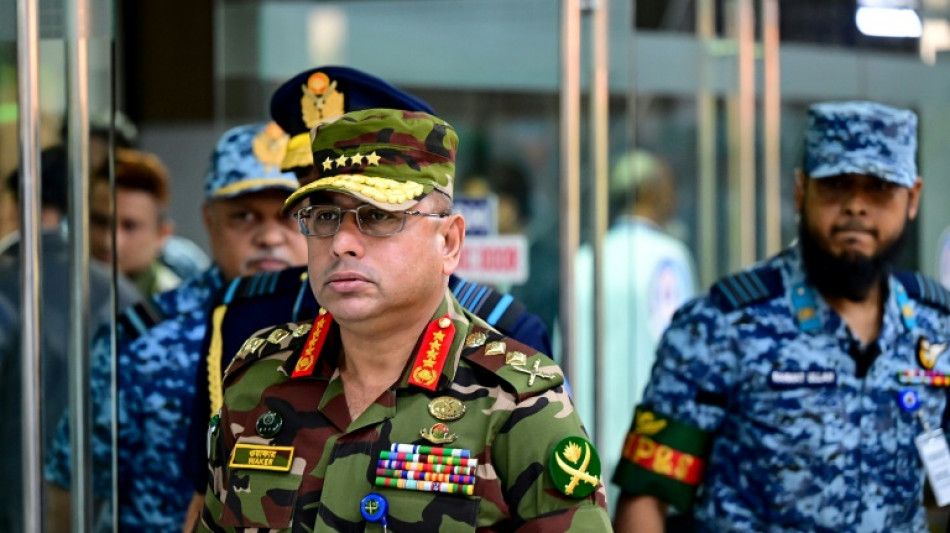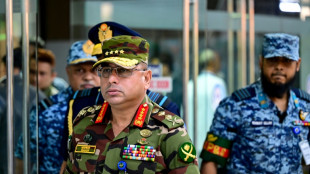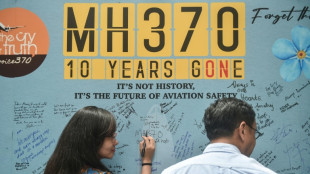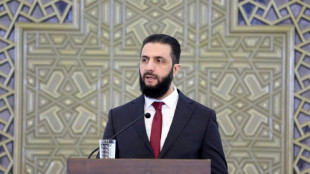

Bangladesh army chief warns country 'at risk' from infighting
Bangladesh's army chief on Tuesday blamed infighting for deteriorating law and order, warning that the gains of the student-led revolution that toppled the government last August were at risk.
The South Asian nation has been struggling to stem a surge in violent crime, with the security forces arresting thousands this month targeting gangs allegedly connected to the party of ousted prime minister Sheikh Hasina.
"If you can't move beyond your differences and continue meddling and fighting among yourselves, the independence and integrity of the country will be at risk -- I warn you," said General Waker-Uz-Zaman, without singling out any group by name.
"Since stakeholders are busy accusing each other, miscreants find the situation favourable. They believe they can get away with anything," he said at an army memorial event.
Bangladesh has been riven by a surge of crime, as well as protests this month where crowds smashed buildings connected to Hasina's family.
Last week rival student factions clashed at a university campus, a sign of serious discord between groups instrumental in driving the uprising against Hasina.
Security forces have arrested more than 8,600 people since it launched "Operation Devil Hunt" on February 8, which the government has accused of being Hasina loyalists and of wanting to "destabilise" the country.
"The anarchy we have witnessed is manufactured by us," Waker said.
- 'Trapped in the same cycle' -
Bangladesh has a long history of military coups.
While it was Waker who took charge after Hasina fled by helicopter to India on August 5, he had also urged the people to back Nobel Prize-winning microfinance pioneer Muhammad Yunus.
Yunus, 84, vows to institute far-reaching democratic reforms and hold general elections in late 2025 or in early 2026, and Waker had sworn in the interim government.
"At the beginning, I said it would take 18 months to hold an election," Waker said.
"We are on that path. Professor Yunus is doing his best to keep us united. Let's help him."
Key student protest leader Nahid Islam resigned on Tuesday from the government cabinet -- where he headed the telecoms ministry -- ahead of the expected launch of a new political party on Friday.
Yunus has said he inherited a "completely broken down" system of public administration and justice that needs a comprehensive overhaul to prevent a future return to autocracy.
Waker said security forces accused of a raft of allegations "of enforced disappearances, murder, and torture must be investigated".
"Punishment must be ensured," he said. "Otherwise, we will be trapped in the same cycle."
The armed forces were granted judicial powers like the police -- including making arrests -- after the revolution.
But Waker, a career infantry officer who has spent nearly four decades in the military, serving two tours as a UN peacekeeper, said he just wanted a break.
"I just want to bring the country and the nation to a stable point and then take a vacation", he said. "After that, we will return to our barracks."
J.Goergen--LiLuX



